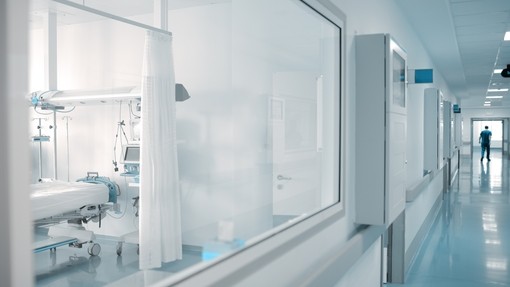Balancing risks in the Court of Protection –Manchester University NHS Foundation Trust -v- William Verden & anr [2022] EWCOP 9

Details
The young man at the centre of this case is William Verden. William is 17 years old, he is at the “heart” of his family, enjoys playing football, golf and doing jobs for others. He enjoys attending specialist schooling and regular respite care and he lives at home with his parents and siblings.
Background
William has diagnoses of moderate to severe learning disabilities with autistic spectrum condition and ADHD. In November 2019, William presented to the Trust’s Royal Manchester Children’s Hospital with signs of kidney failure and in December 2019, he was diagnosed with a disease called Steroid Resistant Nephrotic Syndrome (SRNS).
Peritoneal dialysis (PD) was commenced at home in April 2020 and in September 2021 a best interest’s decision was made to switch William to in-centre haemodialysis (HD).
HD is dependent on venous access and there were significant challenges in this respect. A number of disturbances to the HD line have taken place since September 2021. On occasions the site had to be cleaned and re-dressed and on others the line had to be reinserted by surgery. The last occasion that a new line had to be inserted was on 10 December 2021.
The incidents involving the central line dressing had reduced (no incidents since early January 2022) as William had become more accustomed to the HD routine at the hospital.
William’s HD treatment however requires venous access and William only has two access points left. The treating clinicians would be surprised if he had any access points left in three years. Without this access for HD William would not survive.
The only alternative is a kidney transplant and the difficulties of this for William were set out by the judge as essentially two-fold;
- The chance of disease recurrence is at best 47% and at worst around 80%;
- The real risk that William would not withstand the rapid changes in hospital and the rigours of the necessary treatment for disease recurrence (plasma exchange and HD) post operatively which would require him to be still for up to eight hours a day at least initially.
The application / the issues
The Trust issued this application in December 2021 seeking declarations from the court as to whether it was in William’s best interests to undergo renal transplantation and if so whether it was in Williams’s best interests to undergo a prolonged period of post-operative sedation and ventilation (two to six weeks) to treat any disease recurrence.
All parties agreed during the course of the proceedings that it was in his best interests to continue with haemodialysis, regardless of any decision regarding his transplant, subject to any material changes in his clinical condition.
The Trust’s position was that it was for the Court to decide what was in William’s best interests regarding the transplant, in light of the evidence of the considerable risks to him of post-operative treatment for disease recurrence and the necessary sedation and ventilation to enable that treatment to take place.
The Trust could not say that was is in best interests where William is likely to suffer a significant injury and the prospects of success are as they are. It was on that basis that the Trust needed the Court to make that determination since the case is so finely balanced.
Essentially, the issue for the court was whether the combination of the risks from the transplant, from disease recurrence and the post-operative treatment of plasma exchange which would involve a lengthy period of sedation and ventilation was such that it was not in William’s best interests to go down that path.
The evidence
The case was heard by Mrs Justice Arbuthnot between 28 February and 3 March 2022.
Evidence was provided by the Trust’s clinicians: Dr A, a Consultant Paediatric Nephrologist, Dr B, a Consultant in Paediatric Intensive Care and Dr C, a Consultant Child and Adolescent Psychiatrist.
She also heard evidence from the independent experts Professor Moin Saleem, a Consultant Paediatric Nephrologist, Dr Chris Danbury, a Consultant in Intensive Care and in person from Dr Steve Carnaby, a Consultant Clinical Psychologist.
Finally, she heard from Amy McLennan, William’s mother.
The evidence can be summarised as follows:
- The opinions of the risk of disease recurrence differed considerably between Professor Saleem (50%) and Dr A (between 50 and 100%, closer to 100%)
- The nephrologists agreed that plasma exchange was the usual treatment for disease recurrence and if William was not subject to plasma exchange his chances of remission would be greatly reduced. Plasma exchange would be administered for a minimum of ten sessions over a period of 14 days for three to four hours at a time. If the kidney graft does not function William would also need HD as well as plasma exchange.
- Any dislodging of the lines would put William and his treatment at serious risk. The only way to manage the risks identified above would be way of post-operative sedation and ventilation.
- The risks of ongoing sedation and ventilation (which were described as “harmful and dangerous”) had to be balanced with the risks of not being able to achieve the nephrology treatment because of treatment interference. Sedation and ventilation would be at “a very significant cost to his wider health both physical and psychological” with risks of Post Intensive Care Syndrome (PICS), delirium, sepsis and others.
- Dr Danbury explained in his evidence that in his view up to an 18-day period of sedation and ventilation was justifiable.
- Amy, William’s mother, recognised and understood the risks. She wanted William’s voice to be heard. She said he deserves that chance.
The decision
At the conclusion of the hearing, the Trust reiterated that this was a finely balanced decision and one for the court to make. Ms Mulholland, counsel on behalf of the Trust, said that the court may well conclude that the risks of psychiatric injury are worth taking but the parties should embark on the exercise with open eyes and in full knowledge that it might fail and cause injuries to William that may affect the quality of his life in a negative way.
The position of William’s mother (represented by Victoria Butler-Cole QC) and the Official Solicitor (represented by Emma Sutton) was that it was in his best interests to have the transplant with a period of up to 14 days of sedation and ventilation (post detection of disease recurrence) and a care plan to support William post operatively.
Mrs Justice Arbuthnot recognised the finely balanced nature of the decision in her judgment. In short, she could see that there were risks to William whatever she should decide, framing it as the “least bad decision for William”. She also acknowledged that it was clear the Trust and clinicians had agonised over what was in William’s best interests.
However, the treatment was not futile, she said, and “although the chances are it will lead to an increase in William’s suffering in the short to medium term, it has the commensurate benefit which is that there is a chance for William of a long term survival if the transplant goes ahead”.
The judge, in her judgment of 8 March 2022, determined that it was in William’s best interests to have a kidney transplant and to be electively sedated and ventilated for a period of up to 14 days following the detection of any disease recurrence.
Commentary
The decision about William’s best interests in this case has involved analysing a tree of branching options. The risks, benefits and likely outcomes associated with each one has had to be carefully assessed and the clinical evidence is complex and spans across three disciplines: nephrology, intensive care and psychiatry. The Trust’s clinicians met with the experts to help to narrow the issues and clarify those areas of agreement and disagreement, which proved to be a useful exercise for the judge.
Ultimately the decision by the court in this case is to give William a chance to live, even with the risks associated with disease recurrence and sedation and ventilation, which is not a decision which lends itself to a neat balance sheet exercise or even much complex legal analysis. It is finely balanced and the order of the court aims to strike that balance for William.






